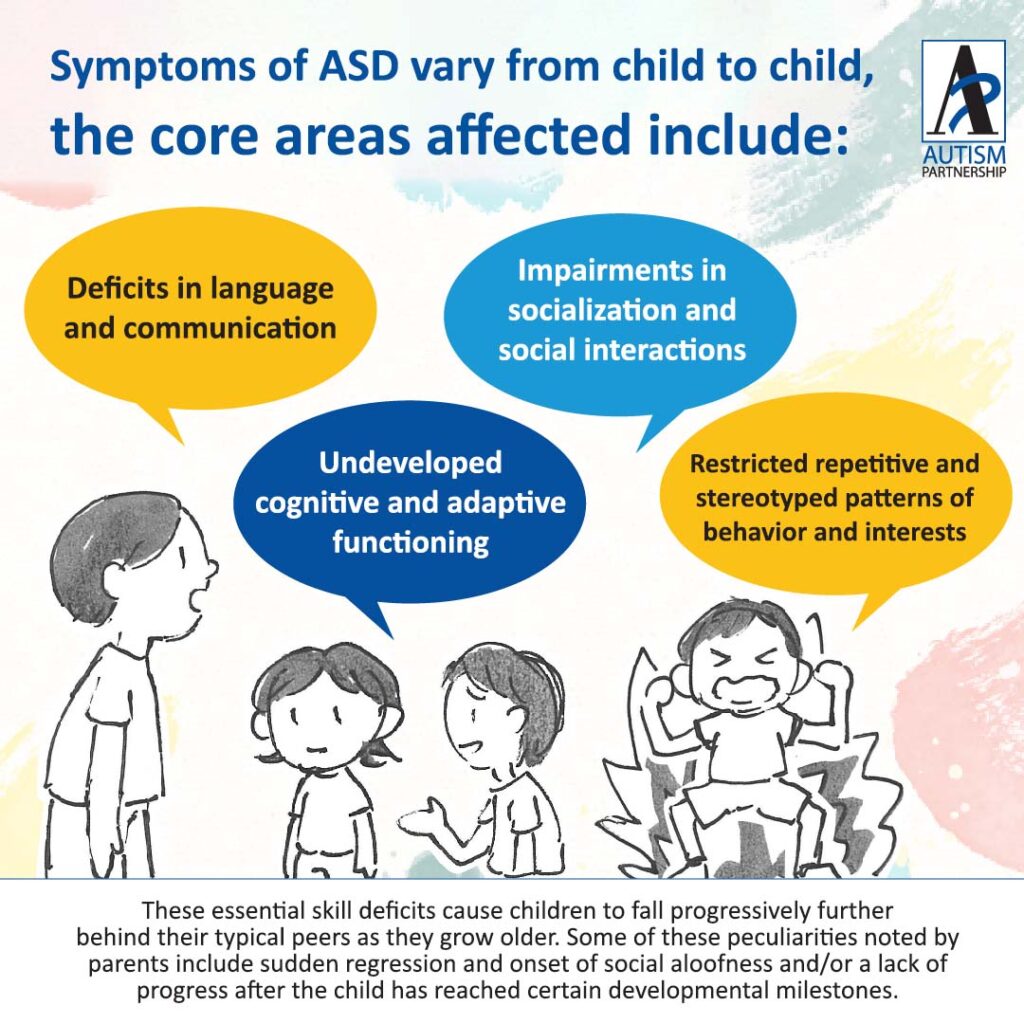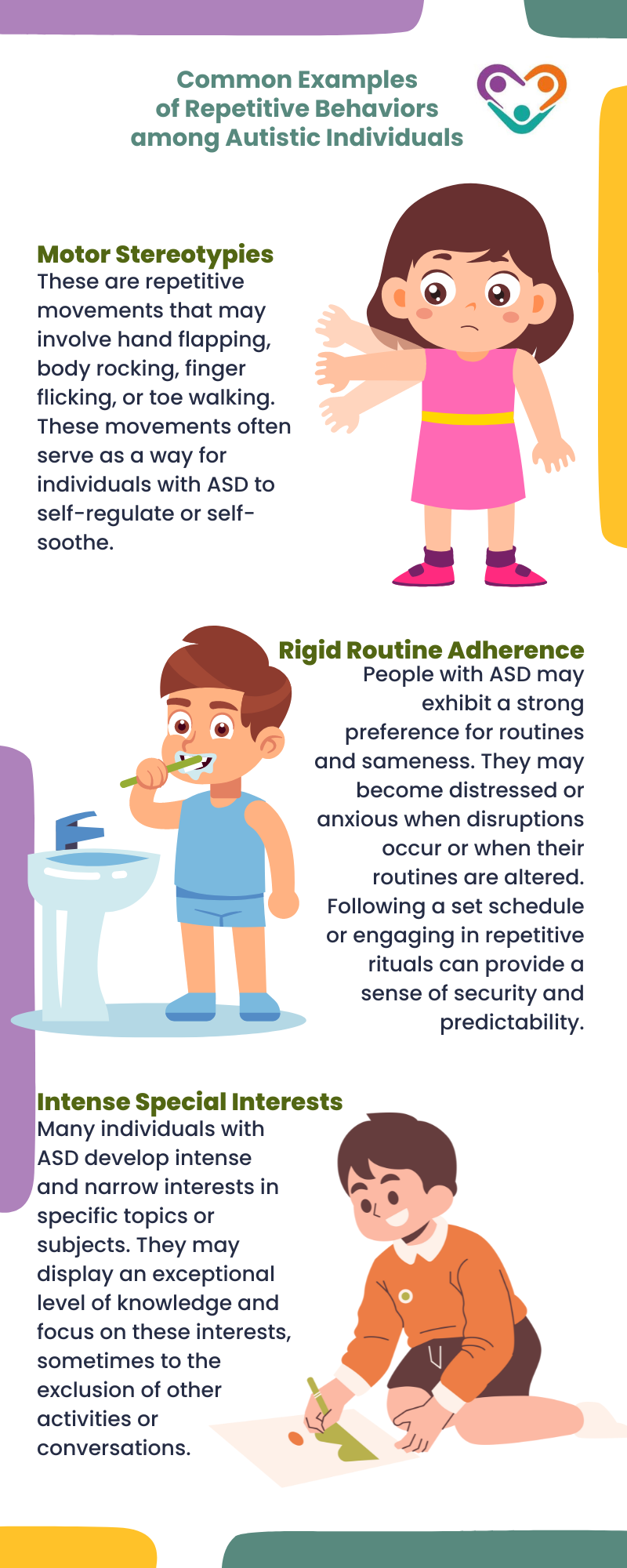Checking Out Efficient Techniques for Supporting People With Behavior Autism
Supporting people with behavior autism requires a nuanced understanding of their one-of-a-kind needs. You'll discover that customized interventions, based in evidence-based techniques, can make a significant distinction. By teaming up with family members and specialists, you can develop a customized approach that fosters interaction and growth. What particular strategies can you carry out to guarantee these people grow? Allow's explore the efficient methods that can improve their day-to-day experiences.
Comprehending Behavior Autism: Secret Characteristics and Obstacles
When you start to comprehend behavioral autism, you'll discover several vital characteristics and challenges that specify the experience for individuals. Many individuals with behavior autism often deal with communication, making it challenging for them to express their needs or feelings efficiently. You may observe repetitive habits, such as hand-flapping or rocking, which work as coping systems for handling stress or sensory overload. Social communications may be challenging; people may locate it difficult to check out social hints, bring about misconceptions in partnerships.
Additionally, sensory level of sensitivities prevail, causing pain in environments with loud sounds or intense lights. These obstacles can bring about anxiety or aggravation, impacting daily life. It's crucial to recognize that each person is unique, and their experiences may differ. Comprehending these characteristics permits you to come close to support with empathy, fostering a positive link that can boost their health and encourage growth.
The Significance of Personalized Interventions
When it comes to sustaining individuals with behavior autism, individualized interventions are necessary. By creating customized treatment plans that concentrate on private toughness, you can greatly boost their growth. Teaming up with support teams ensures everybody is lined up in supplying the very best care feasible.
Customized Treatment Plans
Creating customized treatment strategies is important for effectively sustaining people with behavioral autism, as each individual's demands, obstacles, and staminas vary substantially. Start by collecting thorough info about the person, including their choices, activates, and previous experiences. This adaptability not just cultivates interaction yet additionally promotes a sense of ownership and empowerment for the person.
Individual Staminas Analysis
A specific strengths evaluation is necessary for creating individualized treatments for individuals with behavioral autism. By focusing on everyone's unique capabilities, you can produce strategies that reverberate with their rate of interests and abilities. This strategy not just boosts interaction but also improves confidence.
When you recognize staminas, like outstanding memory or creative talent, you can customize treatments that leverage these areas. This not just makes discovering more reliable but also fosters a feeling of achievement. Bear in mind, every individual has distinct abilities; acknowledging them equips you to craft purposeful experiences.
Incorporating these staminas into daily routines and restorative techniques can bring about enhanced end results. Eventually, focusing on staminas warranties that treatments are not just efficient however also improving for the person.
Collaborative Support Groups
Acknowledging specific staminas establishes the stage for forming collective assistance teams that concentrate on individualized interventions. By bringing together professionals, relative, and the individuals themselves, you create a supportive network that customizes methods to meet details requirements. Each employee contributes distinct insights, ensuring a complete approach that attends to behavior challenges efficiently.
This adaptability is necessary, as it assists everybody involved stay lined up with the individual's goals and choices. Additionally, involving in this team-based method empowers people with autism, promoting their self-advocacy and confidence.
Evidence-Based Communication Techniques

When dealing with individuals on the autism range, employing evidence-based interaction techniques can substantially boost their capability to connect and express themselves. Using visual supports, like photo routines or communication boards, aids make clear expectations and fosters self-reliance. Streamlining language and using concrete terms permits far better understanding, decreasing stress.
Including social tales can prepare individuals for different scenarios, teaching them appropriate actions and actions. Encouraging using assistive technology, such as speech-generating devices, equips people to connect better. Additionally, employing consistent regimens and predictable environments can offer a feeling of protection, making communication a lot more effective.
Bear in mind to be individual and give them time to process your words. Participating in energetic listening, where you show their feelings and ideas, can strengthen your connection. By implementing these methods, you'll produce a more helpful communication environment for individuals with autism.
Creating Helpful Environments
Producing supportive atmospheres for people with behavioral autism starts with executing structured routines that offer predictability and safety. You'll also desire to create sensory-friendly spaces that satisfy specific requirements, minimizing frustrating stimuli. In addition, making use of positive support methods can encourage wanted habits and promote a feeling of achievement.
Structured Routine Execution
Establishing a structured regimen can considerably improve the setting for individuals with behavior autism. By producing a consistent timetable, you give predictability, which can decrease anxiety and complication. Start by damaging the day into convenient segments, integrating activities like dishes, play, and peaceful time. Usage visual routines or timers to help them comprehend what comes next. See to it to consist of chances for breaks, as these can aid them regroup and refocus. It's vital to be versatile; while routines are helpful, adapting to changes in state of mind or conditions is important. Encourage participation in establishing the regular, so they really feel a feeling of ownership and control. A well-structured atmosphere promotes independence and confidence, supporting their overall advancement.
Sensory-Friendly Spaces Design

Positive Support Methods
When you incorporate favorable reinforcement strategies right into your strategy, you can greatly improve the knowing and behavioral end results for individuals with autism. Start by determining what motivates the private-- be it applaud, tokens, or unique activities. You can likewise progressively enhance the intricacy of tasks as individuals end up being much more comfortable, strengthening their progression.
Collective Strategies: Dealing With Professionals and households

Including member of the family website in decision-making empowers them and improves their capacity to support their liked ones. Professionals, including teachers and specialists, can supply beneficial resources and training that further aid family members.
You ought to also respect each party's perspective, identifying that households know their youngster best while specialists bring specialized expertise. By crafting personalized strategies with each other, you create a tailored technique that attends to one-of-a-kind needs. Autism Therapist. Inevitably, this partnership not just profits the private with autism however additionally reinforces the assistance network surrounding them, making it much more natural and efficient
Including Social Abilities Training
Building on the strong partnerships created between experts and family members, incorporating social skills training can substantially boost the assistance provided to Autism Behavioral Therapy individuals with behavioral autism. This training aids you educate crucial interaction skills, such as initiating conversations, comprehending non-verbal hints, and reacting suitably in social situations.
By using organized tasks, role-playing, and real-life circumstances, you create chances for practice in a safe environment. Encourage people to join group settings where they can engage with peers, fostering friendships and enhancing their comfort in social contexts.
It is very important to customize the training to every individual's distinct staminas and difficulties, ensuring they feel certain and capable. Frequently incorporating comments from both professionals and family members can refine these strategies, making social abilities training extra effective. Ultimately, you're empowering people with the tools they need to navigate social interactions successfully and build meaningful partnerships.
Keeping An Eye On Progress and Adjusting Strategies
As you apply social skills training, it's vital to monitor progress and change techniques appropriately. Maintain track of actions, noting obstacles and renovations.
Engage the person in reflection, asking exactly how they really feel regarding their progression and what challenges they face. This comments is invaluable for customizing your strategy. If particular strategies aren't generating outcomes, do not be reluctant to modify them.
Integrate a range of methods to keep the training dynamic and appealing. Work together with other caretakers or experts for fresh perspectives and insights. Keep in mind, flexibility is vital; what jobs today might not work tomorrow. By staying responsive and mindful, you develop an atmosphere that fosters development and advancement. Always celebrate success, regardless of how small, to urge continued effort and enthusiasm.
Often Asked Concerns
What Are the Typical Misconceptions About Behavioral Autism?
You might assume behavior autism only affects communication, however it incorporates a lot more. Several think all people with autism act the same, neglecting their unique characteristics and abilities. It's necessary to comprehend each person's website differences.
How Can Innovation Assist in Supporting People With Behavioral Autism?
Modern technology can boost communication, providing devices like applications for social skills and habits monitoring. You can utilize online truth for immersive experiences, and wearable gadgets can keep track of emotions, aiding you sustain individuals successfully.
What Function Do Sensory Processing Issues Play in Behavioral Autism?
Sensory processing problems can substantially influence habits. You might notice that frustrating sensory input brings about anxiety or crises. Understanding these difficulties aids you create an extra encouraging environment for people experiencing sensory overload.
Exist Particular Dietary Suggestions for Individuals With Behavior Autism?
Yes, certain nutritional referrals can assist. You might consider a gluten-free or casein-free diet regimen, which some discover useful (Autism Behavioral Therapy). Always consult a medical care professional prior to making considerable modifications to ensure it's best for you or your enjoyed ones
Exactly How Can Peers Be Enlightened to Assistance People With Behavioral Autism?
To inform peers, you can arrange workshops, produce insightful products, and motivate open discussions. Involving activities, like role-playing scenarios, assist them recognize obstacles encountered by individuals, promoting empathy and effective support within the neighborhood.
Checking Out Efficient Strategies for Supporting People With Behavioral Autism.
Developing tailored intervention strategies is crucial for properly sustaining individuals with behavior autism, as each person's toughness, needs, and challenges differ substantially.A specific toughness analysis is vital for developing customized treatments for individuals with behavior autism.To sustain individuals with behavior autism, designing sensory-friendly rooms is crucial, as it can significantly boost their convenience and focus.Collective techniques are important for supporting individuals with behavior autism, as they cultivate a strong collaboration in between family members and specialists.